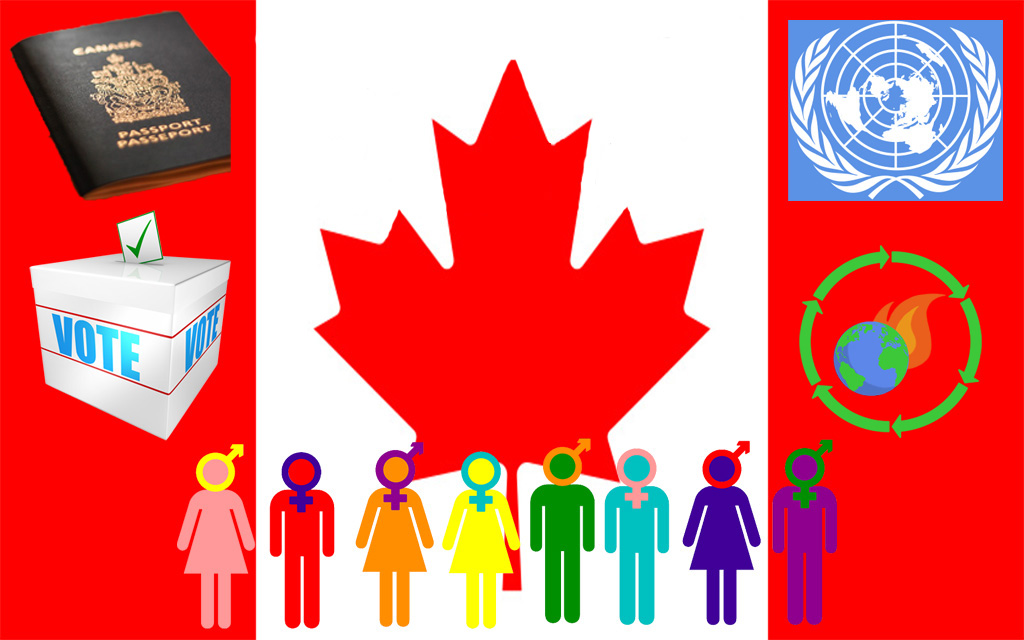We are in a time where the affordability of post-secondary education is at the forefront of every current and potential student’s minds. This election, what the federal parties propose to do about the affordability of post-secondary education is important.
Today, according to Statistics Canada the average student with debt owes $26,300 at the end of an undergraduate degree.
With this in mind, let’s look at what the parties campaigning for your vote this federal election have promised to do about the rising costs students face while getting their education.
The Liberal Party of Canada, led by Justin Trudeau, whose Fredericton candidate is the incumbent MP Matt Decourcey, promises to offer “full and part-time students up to $1,200 more per year, through increased Canada Student Grants,” up from the current maximum of $3000 per school year. They also promise to “give students two years after graduation [exempt from payments] before they need to begin paying off their student loans, interest-free.”
If elected, they said they will make it so graduates don’t have to repay their loans until they make at least $35,000. “If their income ever falls below this level, their payments will be put on hold.” The Liberals vow to “make it easier for parents to focus on their families rather than their debt [by allowing] new parents to pause their student loan repayments, interest-free, until their youngest child reaches the age of five.”
The Conservative Party of Canada, led by Andrew Scheer, with Fredericton candidate Andrea Johnson, have no actual platform released to date, but have not made clear what they will do to tackle the post-secondary affordability crisis on the national level.
The Green Party of Canada, led by Elizabeth May, whose Fredericton candidate is Jenica Atwin, promise to make college and university tuition free for all Canadians. They would also “forgive the portion of existing student debt that is held by the federal government.”
With their continued focus on reconciliation, the Greens would “remove the two per cent cap on increases in education funding for Indigenous students and ensure all Indigenous youth have access to post-secondary education.” According to a 2015 CBC article, “First imposed by a Liberal government in 1996, the two per cent cap was a limit Indigenous and Northern Affairs placed on annual increases to First Nations’ budgets.” As an aside, the current government already did this in 2015, which is why the Dec. 12 2015 CBC article was written. The Green Party also promise to “tie funding in federal-provincial transfers to universities” in order to benefit students’ educational experiences.
The New Democratic Party, with leader Jagmeet Singh, whose Fredericton candidate is Mackenzie Thomason, plan to make sure that everyone, regardless of their income, has access to a post-secondary education. They plan to do this by “building towards making post-secondary education part of our public education system,” and by “eliminating interest rates on student loans.” They also state the NDP will “move away from loans and significantly increase access to non-repayable Canada Student Grants.”
The People’s Party of Canada, led by Maxime Bernier, with their Fredericton candidate Jason Paull, also have no plan laid out in their platform to tackle student debt and the rising cost of education.
With this issue at the forefront of many voters’ minds, special polling is open in James Dunn Hall on St. Thomas University’s campus until Wednesday, Oct. 9. If you can vote, go and exercise your democratic right in this election, either during special polling or on Oct. 21. Facebook shares do not lead to meaningful change in our political climate. Voters from age 18 to 35 make up the largest percentage of the electorate this year. Your vote matters. You matter. Go vote and show your elected officials this is the case.

